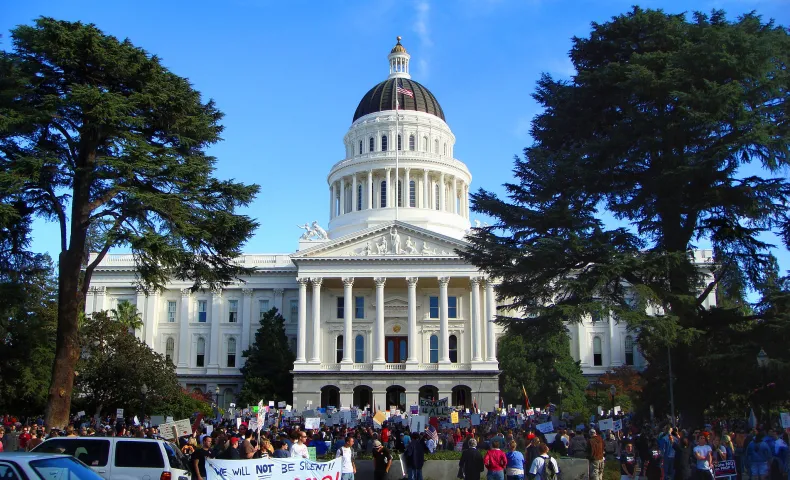 Photo by Mark James Miller
Photo by Mark James Miller
An In-Depth Analysis of the Prop 8 Vote
When California voters approved the Proposition 8 ban on same-sex marriage in 2008, it came as a shock and a blow to many gay rights activists who had long considered the Golden State a frontier of LGBT acceptance. Prop 8 has since been found to be unconstitutional and public opinion in California has turned against it. But this analysis of the voter demographics helped the marriage equality movement understand the nature of the anti-gay opposition in California and adopt new strategies to better change hearts and minds.
Party, ideology, church attendance and age drove “yes” vote
Early reports pointed to a racial divide on same-sex marriage. However, this 2009 report, commissioned by the Haas, Jr. Fund, found that age, party affiliation, political ideology, and frequency of attending worship were the major demographic factors that led to the passage of Prop 8. Race, on the other hand, was much less of a factor than many originally believed. This analysis puts African-American support for Proposition 8 at no more than 59 percent — nowhere close to the 70 percent reported the night of the election. Finally, the study shows how support for marriage equality has grown substantially across almost all California demographic groups — except Republicans.
The study was written by Patrick J. Egan of New York University and Kenneth Sherrill of Hunter College, who reviewed polls, and precinct-level voting data from five California counties with the highest number of African-American voters.